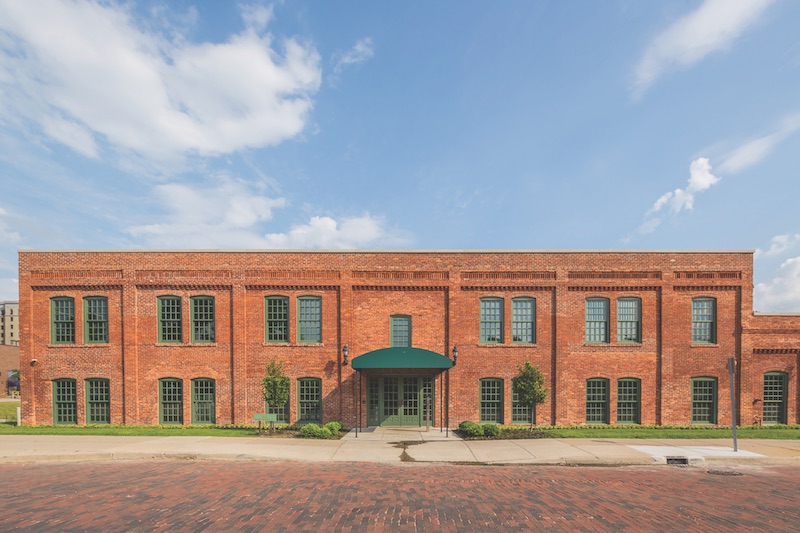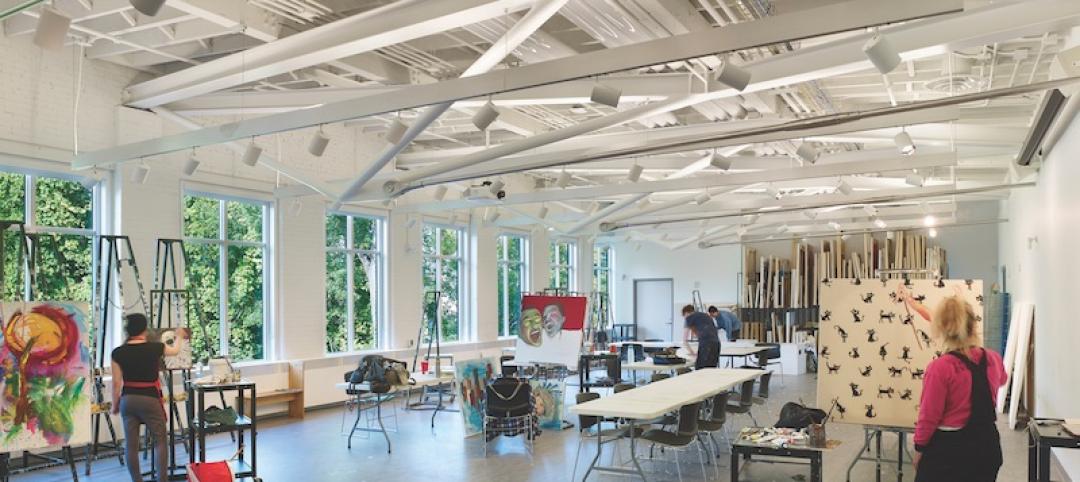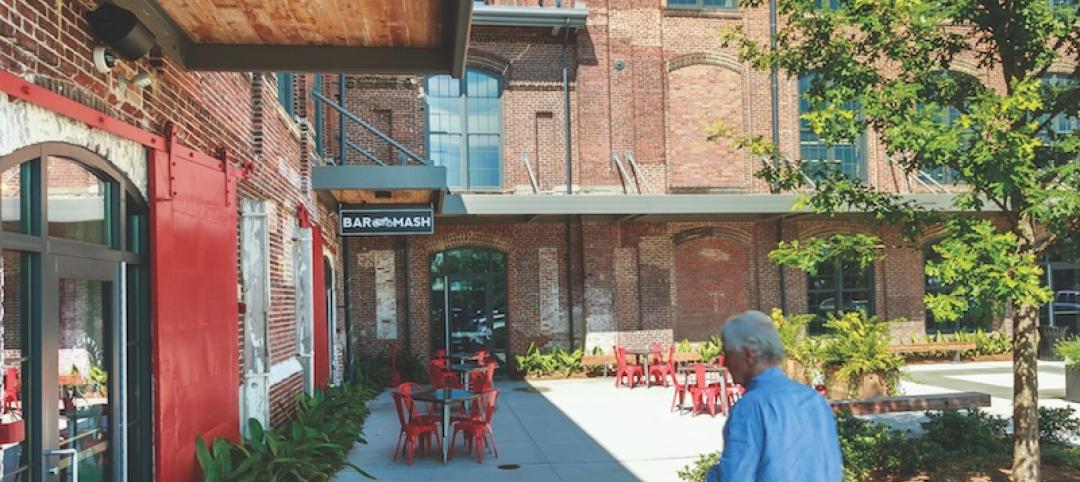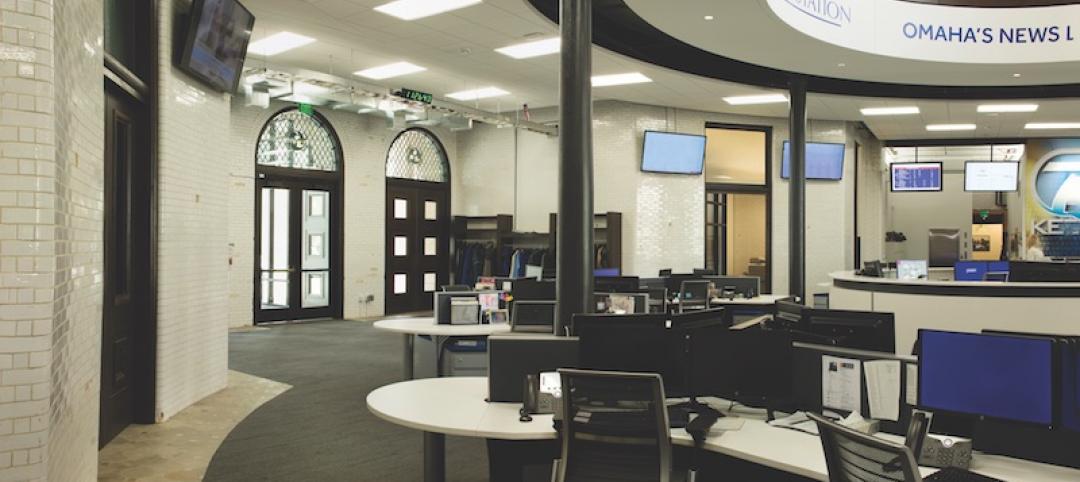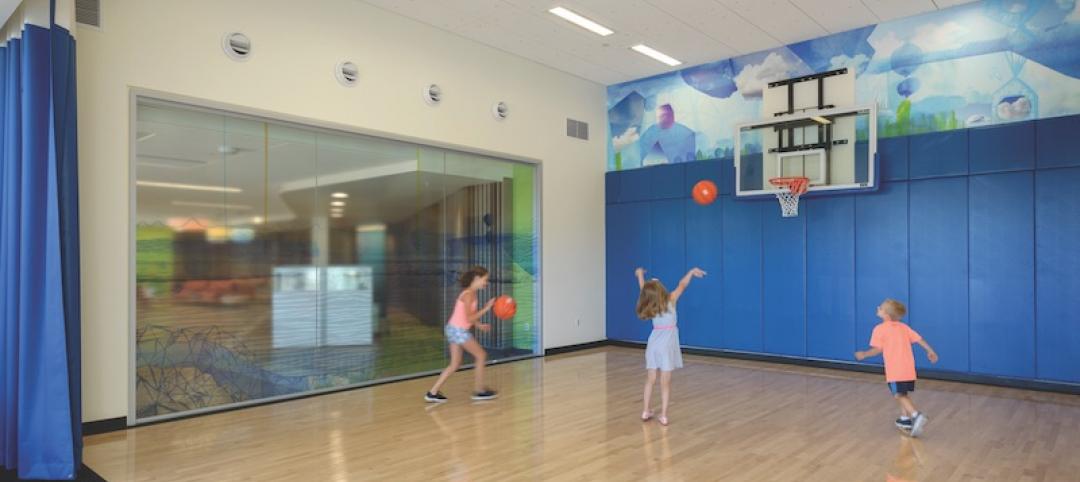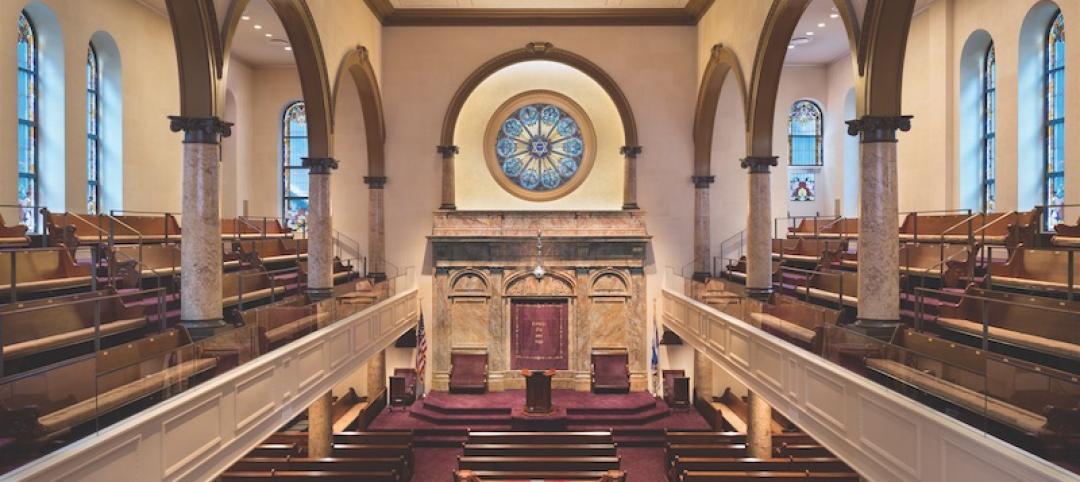When William Crapo “Billy” Durant and Josiah Dallas Dort leased a cotton mill in Flint, Mich., in 1886 for their new carriage-building business, no one could have predicted that, 22 years later, Durant would gain control of Buick Motor Company from its founder, David Dunbar Buick, and form General Motors Company. The old cotton mill, known as Durant-Dort Factory One, is regarded by historians as the place where GM was born.
Over the years, Factory One went through hard times. Four years ago, General Motors formed a collaboration with the Durant-Dort Office Carriage Company Foundation, the Genesee County Historical Society, and Kettering University to save this important piece of Flint and automotive history. GM bought the 30,184-sf building and brought in SmithGroupJJR and Brencal Contractors to turn the building into offices, an archival center, and event space.
By 2014, the National Historic Landmark had seen better days. The grade of the building had fallen 18 inches. Runoff submerged the first floor and eroded the brick masonry bearing walls, causing foundation settling. The project team replaced 17,000 damaged bricks with color-matched substitutes. Five thousand linear feet of mortar, representing 20% of the mortar on the building, was carefully blended to match the color of the existing mixture.
A new roof, new doors, and custom mahogany divided-pane windows were installed. The windows were painted green to match the historic Durant-Dort Carriage Company building across the street.
Portions of the second level dipped 9½ inches. These areas were leveled with a new raised subfloor in which power and data communications were installed. The renovation of the second story now provides a workspace, kitchenette, and meeting areas for GM employees. Factory One also provides space for community groups to rent for events.
The building houses a GM carriage-building and vehicle-manufacturing collection of more than 100,000 documents, some of which date to the late 19th century. To protect the archives from temperature variation and humidity, SmithGroupJJR designed a glass-encased, vapor-sealed room in the center of the building. A mechanical system maintains a temperature of 72° F (plus/minus two degrees) and a relative humidity of 50% (plus/minus 5%).
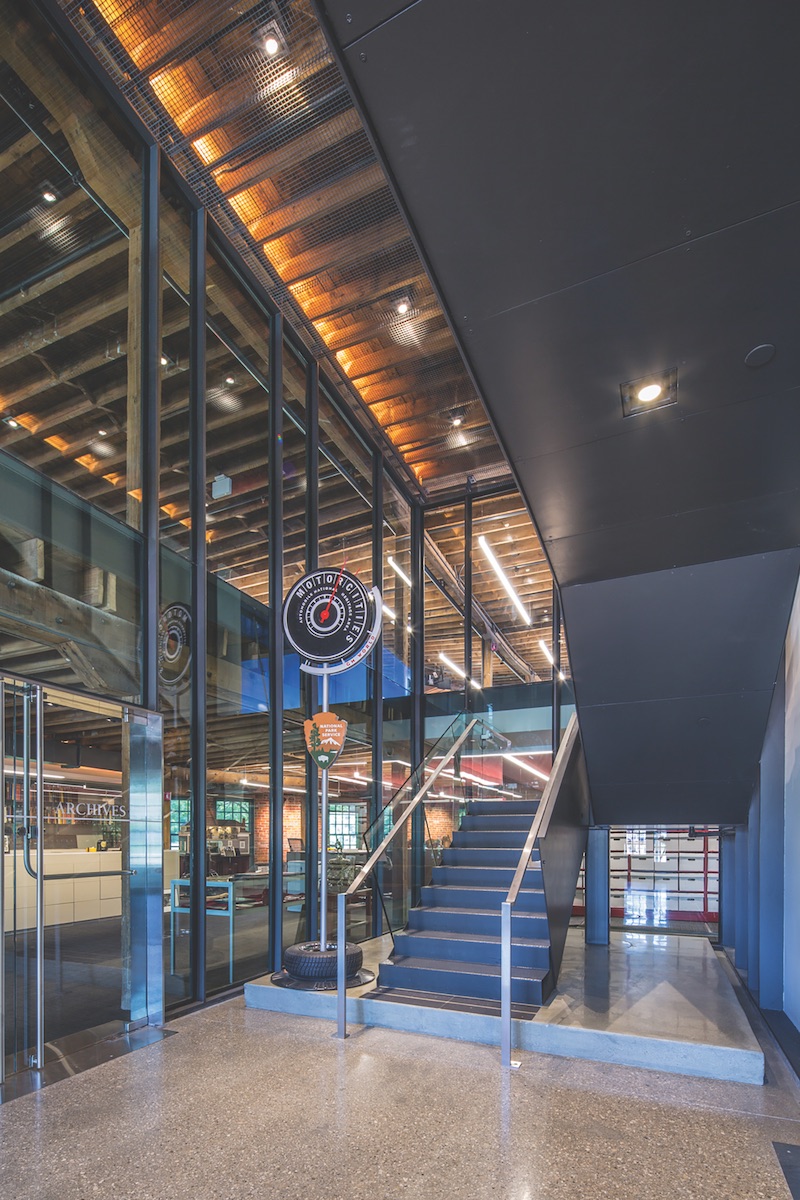 A two-story entry hall was carved out of the existing structure. The grade of the original building was 18 inches below what it was in the 1880s, causing water damage, and had to be remediated. Photo: © Jason Robinson Photography.
A two-story entry hall was carved out of the existing structure. The grade of the original building was 18 inches below what it was in the 1880s, causing water damage, and had to be remediated. Photo: © Jason Robinson Photography.
Project Summary
Silver Award Winner
Building Team: SmithGroupJJR (submitting firm, architect, AOR, interior architect, SE, MEP). Brencal Contractors Inc. (GC).
Details: 30,184 sf. Total cost: $8.7 million. Construction time: August 2014 to May 2017. Delivery method: Design-bid-build.
See all of the 2017 Reconstruction Award winners here
Related Stories
Reconstruction Awards | Nov 16, 2016
Reconstruction Awards: Marilyn I. Walker School of Fine and Performing Arts, Brock University
The five-story brick-and-beam structure is an adaptive reuse of the Canada Hair Cloth Building, where coat linings and parachute silks were once made.
Reconstruction Awards | Nov 16, 2016
Reconstruction Awards: Marwen
Marwen currently offers 100 studio courses to 850 underserved students from 295 schools and 53 zip codes.
Reconstruction Awards | Nov 16, 2016
Reconstruction Awards: The Cigar Factory
The Cigar Factory was originally a cotton mill but became the home of the American Cigar Company in 1912.
Reconstruction Awards | Nov 16, 2016
Reconstruction Awards: St. Patrick's Cathedral
The cathedral, dedicated in 1879, sorely needed work.
Reconstruction Awards | Nov 15, 2016
Reconstruction Awards: Lovejoy Wharf
After demolishing the rotten wood wharf, Suffolk Construction (GC) built a new 30,000-sf landscaped quay, now known as Lovejoy Wharf.
Reconstruction Awards | Nov 15, 2016
Reconstruction Awards: KETV-7 Burlington Station
The 1898 Greek Revival train terminal, which was listed on the National Register of Historic Places in 1974, had been abandoned for nearly four decades.
Reconstruction Awards | Nov 14, 2016
Reconstruction Awards: The Gallery at the Three Arts Club
On the exterior of the building, masonry and terra cotta were revitalized, and ugly fire escapes on the south façade were removed.
Reconstruction Awards | Nov 14, 2016
Big-box store rescaled to serve as a preventive-care clinic
The hospital was attracted to the big box’s footprint: one level with wide spans between structural columns, which would facilitate a floor plan with open, flexible workspaces and modules that could incorporate labs, X-ray, ultrasound, pharmacy, and rehab therapy functions.
Reconstruction Awards | Nov 14, 2016
Fire-charred synagogue rises to renewed glory
The blaze left the 110-year-old synagogue a charred shell, its structural integrity severely compromised.
Reconstruction Awards | Nov 11, 2016
Adaptive reuse juices up an abandoned power plant
The power plant was on the National Register of Historic Places and is a Recorded Texas Historic Landmark.


